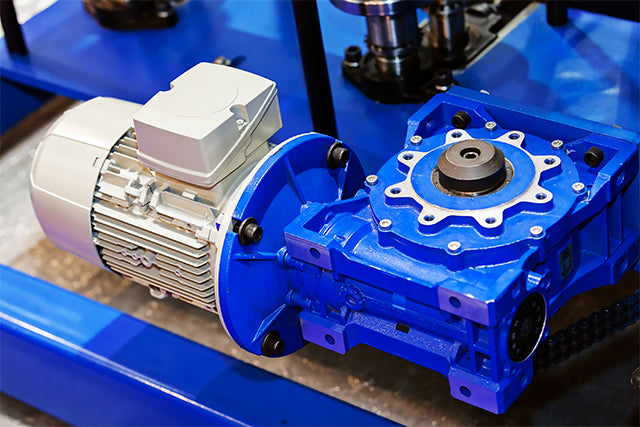
Fuses and Fuse Holders For Industrial Applications
Standard fuses range in values from a milliAmps up to around 35 Amps. These fuses are very cheap since they are mass produced and standard for the majority of applications. However inverters require much faster responses, and are usually far superior in their ratings and have to cover a wider range of power outputs.
Selecting the correct value of fuse for any given inverter is not always easy – take a look at the instruction manual for the inverter to see if a fuse value is specified.
Please call us on 01905 887 667 if you require assistance speccing the correct size of Fuse for your Inverter.

What Is a Bussmann NH Fuse?
The Bussmann range of NH Fuses are class leading. Providing amazing performance and reliable indication, both necessary for the demanding environments they are used in.
The Bussmann range is fully IEC 60269-1 and 2 compliant and are all sized according to the DIN 43620 specs.
Here at ACDC Drives we stock the full range of NH fuses and keep them on the shelf. If you require any specialist fuses that you cannot see listed on our site, please give us a call on 01905 887667 or drop us an email and we will source it for you from one of our many suppliers.


Which type of NH Fuse do I need?
Before choosing the fuse link, please ensure you have the following parameters available:
Type of Application
For general applications or cable protection, the standard gG (general purpose) NH fuse link should be considered. For Motor protection applications, the aM (motor protection) NH fuse link should be considered. Motor Protection (aM) fuse links have partial range breaking ability and cannot clear low overload faults. They should only be applied to circuits also protected by a motor protection relay or where only high short-circuit faults could occur.
System Voltage
Bussmann’s NH fuse links are available in three voltage ratings, 400V, 500V and 690V. These are maximum voltage ratings and should not be used where the nominal system voltage could exceed the fuse link’s maximum rating.
Full Load Current
Bussmann’s NH fuse links are tested to carry full load current. The rated current of a fuse link should be equal or greater than the operational current of the circuit and equal or smaller than the continuous current carrying capacity of the conductor. The standard gG (general purpose) NH fuse link with a conventional fusing current of 1.6 times rated current will give assured cable protection against the effects of overcurrents.
Non-fault overload currents (motor inrush currents)
Possible fault conditions and maximum short-circuit current
What Is a BS88 Fuse?
British style fuses are typically found in equipment manufactured in the United Kingdom or British Commonwealth countries. However, North American manufacturers have begun to specify British style fuses — particularly in UPS applications at 240V or less — to take advantage of their size, performance and cost benefits.
Bolted tag fuses are used to protect circuits from overcurrent and short circuits. They achieve this by having a weak point or fuse link inside which will melt if there is a sudden surge in the electricity, this will then protect anything in the circuit from overloading. These fuses have various breaking capacity ranging from 1A to 325A.
There are multiple different ratings for the fuses which allow the circuit to run at the required capacity without breaking the fuse when not necessary. For example a circuit running at 55 Amps will require a fuse rated higher than that amperage so it does not trip under normal operation, but if a 63A fuse is installed, it will then trip if the amperage rises above that number of Amps.
There are a multiple number of manufacturers including: Bussmann Cooper, Mersen & Schneider
Here at ACDC Drives we stock the full range of BS88 fuses and keep them on the shelf. If you require any specialist fuses that you cannot see listed on our site, please give us a call on 01905 887667 or drop us an email and we will source it for you from one of our many suppliers.


What are the Voltage Ratings on BS88 Fuses?
Voltage Rating
For general applications or cable protection, the standard gG (general purpose) NH fuse link should be considered. For Motor protection applications, the aM (motor protection) NH fuse link should be considered. Motor Protection (aM) fuse links have partial range breaking ability and cannot clear low overload faults. They should only be applied to circuits also protected by a motor protection relay or where only high short-circuit faults could occur.
General Information
Designed and tested to:
- BS88: Part 4
- IEC 269: Part 4
- UL Recognised
What Is a Cartridge Fuse?
A Cartridge fuse is a cheap safety device used to protect electrical equipment and provide circuit protection. Cartridge Fuses are available in a wide variety of sizes, amp and volt ratings up to 600VAC and 600 Amps.
Here at ACDC Drives we stock the full range of cartridge fuses and keep them on the shelf. If you require any specialist fuses that you cannot see listed on our site, please give us a call on 01905 887667 or drop us an email and we will source it for you from one of our many suppliers.


Where is a Cartridge Fuse Used?
Cartridge fuses are used frequently in commercial, industrial and agricultural applications as well as air conditioning, pumps, appliances and other equipment.
Cartridge fuses are available in two types:
- General Purpose fuses have no time-delay and protect fuse panels, appliances and branch circuits.
- Heavy Duty fuses have a time-delay feature, allowing momentary motor start-ups. Both are available in 230VAC and 600VAC versions with a catalogue symbol and amp rating stamped on the knife blade or end cap.
Do I Need a Fuse Holder For Cartridge Fuses?
Yes, you will need a Fuse Holder for these, in the correct configuration. This will need to match the number of poles you wish to protect, and can include blown fuse indicators etc. Please find the correct Fuse Holder here.
How Does a Cartridge Fuse Work?
Inside the fuse is a small metal strip that is connected to both caps at the end of the fuse. If there is a short or fault anywhere in the circuit, or the circuit is overloaded, the metal strip, or link, heats up and quickly melts, which breaks the circuit and stops the flow of electricity. It can only be used once and then needs to be replaced because the ‘link’ is broken.
When replacing a cartridge fuse, the fuses must be identical in their amp and voltage ratings to allow the current to flow once again.

Why use a cartridge fuse?
Cartridge fuses are one of the cheapest ways to protect your circuit from over current and short circuits. They are very safe and do not produce flames or an arc when they break the circuit. Also, if you choose the general purpose option they operate instantaneously ensuring safe operation.
What Is a Fuse Holder?
A Fuse Holder is an enclosure into which a fuse can be inserted. They usually feature a way of simply mounting a Fuse carrier in a panel, or to a surface to make it easier to access and change fuses when required. They are available in many different sizes and forms, depending on the type of fuse you will be using.
What Does The IP Rating Mean On A Fuse Holder?
An IP Protection rating of IP2X simply means that fingers cannot reach the internals of the carrier or the fuse contained therein.

Which Types Of Fuse Holder Are Available?

We sell all types of Fuse Holder, but list the main ones here on our shop.
These include:
- Cartridge Fuse Holders - For Cartridge Fuses
- NH Type Fuse Holders - For NH Centered Tag Fuses
- DIN Rail Mounted - Used in sets and allow fuse holders to be mounted inside panels
We can supply any type of fuse carrier, if you do not see the type you require, please email or call us and we will send you a quote.
Why Do Fuse Holders Need To Be Replaced?
The fuse holder itself rarely fails, but if fuses are replaced frequently the moving parts may wear. If you do have a fuse blow, the contacts can get damaged, if these cannot be cleaned properly, it is sometimes wise to replace the holder. In the case where contacts are not clean, there may be an issue with overheating, this can damage the fuse holder itself and lead to further problems.

Why Do You Only Sell Selected Fuse Holders?
We only sell the products we use personally. There are many other brands that are great, but as we use stock for our systems too, these are the ones we feel confident in the quality and longevity of.


















































